August 1, 2025 | 11:16 GMT +7
August 1, 2025 | 11:16 GMT +7
Hotline: 0913.378.918
August 1, 2025 | 11:16 GMT +7
Hotline: 0913.378.918
After more than a decade of implementation, the One Commune One Product (OCOP) program in Quang Ninh has entered a new phase of advancement, focusing not only on increasing domestic value but also on expanding exports.
From signature highland products such as canna vermicelli, golden camellia tea, and camellia oil, the province is steadily building closed-loop value chains, investing in technology, and implementing traceability systems to bring OCOP products to international markets, especially demanding ones like Japan, South Korea, and Europe.
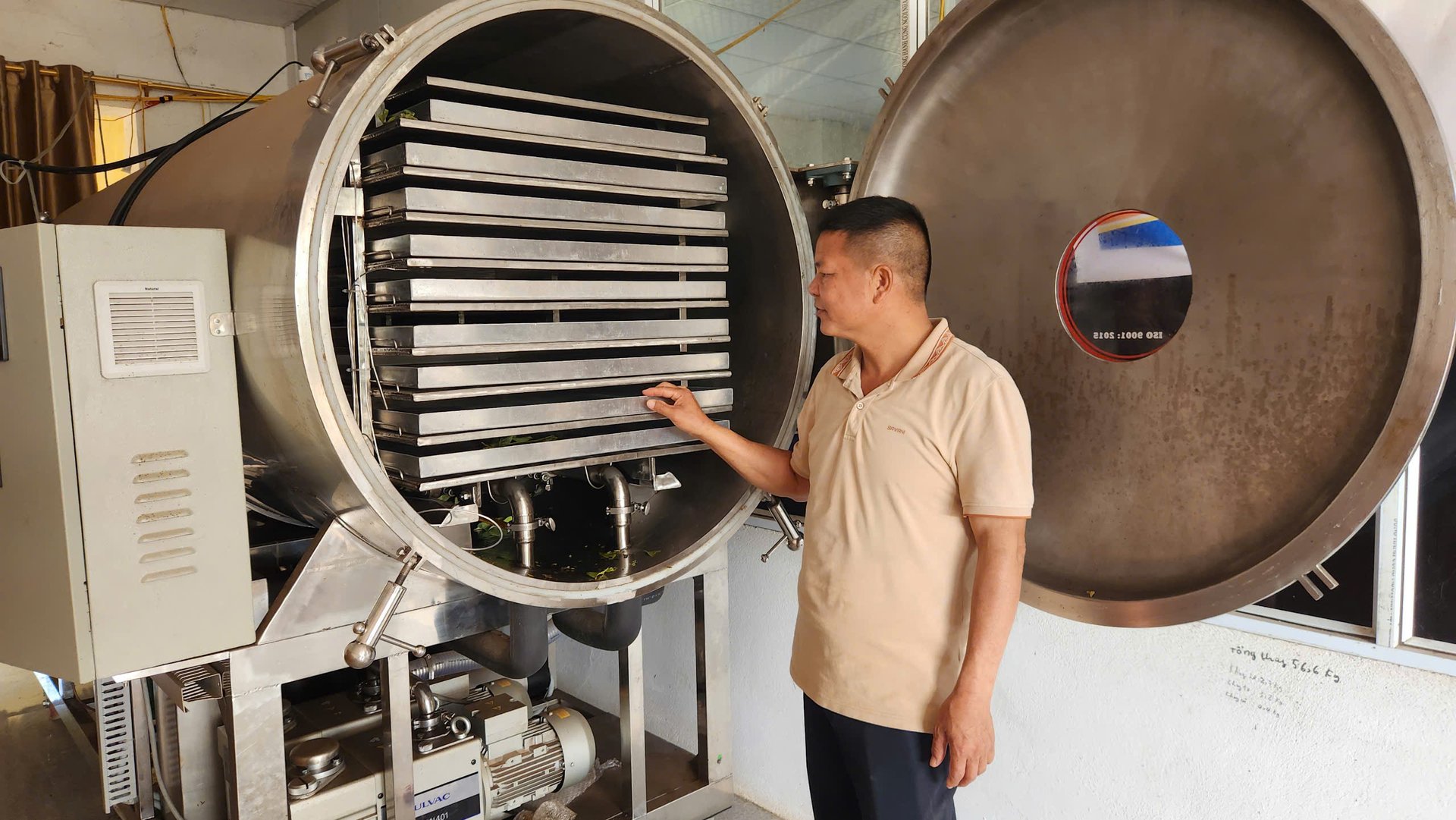
Mr. Ninh Van Trang uses freeze-drying technology to enhance product quality. Photo: Nguyen Thanh.
Mr. Ninh Van Trang, Director of Dap Thanh Forestry Products Trading Joint Stock Company (based in Ky Thuong commune), shared that his company is gradually expanding its export market for golden camellia tea, one of Vietnam’s nationally certified 5-star OCOP products.
With over 30 hectares of organically cultivated raw material areas and a production system equipped with ISO 22000-certified extraction and freeze-drying technologies, the company has initially received positive feedback from both domestic and international partners.
According to Mr. Trang, when entering international markets, the key lies not only in product quality but also in ensuring a stable supply chain, robust quality control systems, and traceability. This is why his company has made comprehensive investments, from cultivation and processing to packaging, QR code labeling, and geographical indication registration. “To go global, we must change our production mindset. Agricultural products are not just plants; they are assets that need to be properly valued and protected,” he emphasized.
Following a similar path, Binh Lieu’s cellophane noodles are also steadily making their way into international markets. Made from canna roots grown in highland communes with a cool climate, this product stands out for its chewy texture, clarity, and natural aroma – qualities that position it well for premium market segments.
Producer cooperatives in Binh Lieu have invested in solar-powered drying systems, vacuum packaging, and the application of electronic traceability labels. Binh Lieu’s cellophane noodles have been rated as a 5-star national OCOP product and were officially recognized at the national OCOP conference in 2025. Since around 2021, they have started to be exported to the Chinese market.
According to the Quang Ninh Department of Agriculture and Environment, the province currently has 435 OCOP products rated 3 stars or higher, including 8 products certified with the national 5-star rating. These products meet the requirements to access international markets, especially if further investments are made in packaging design, food safety standards, and international brand development.
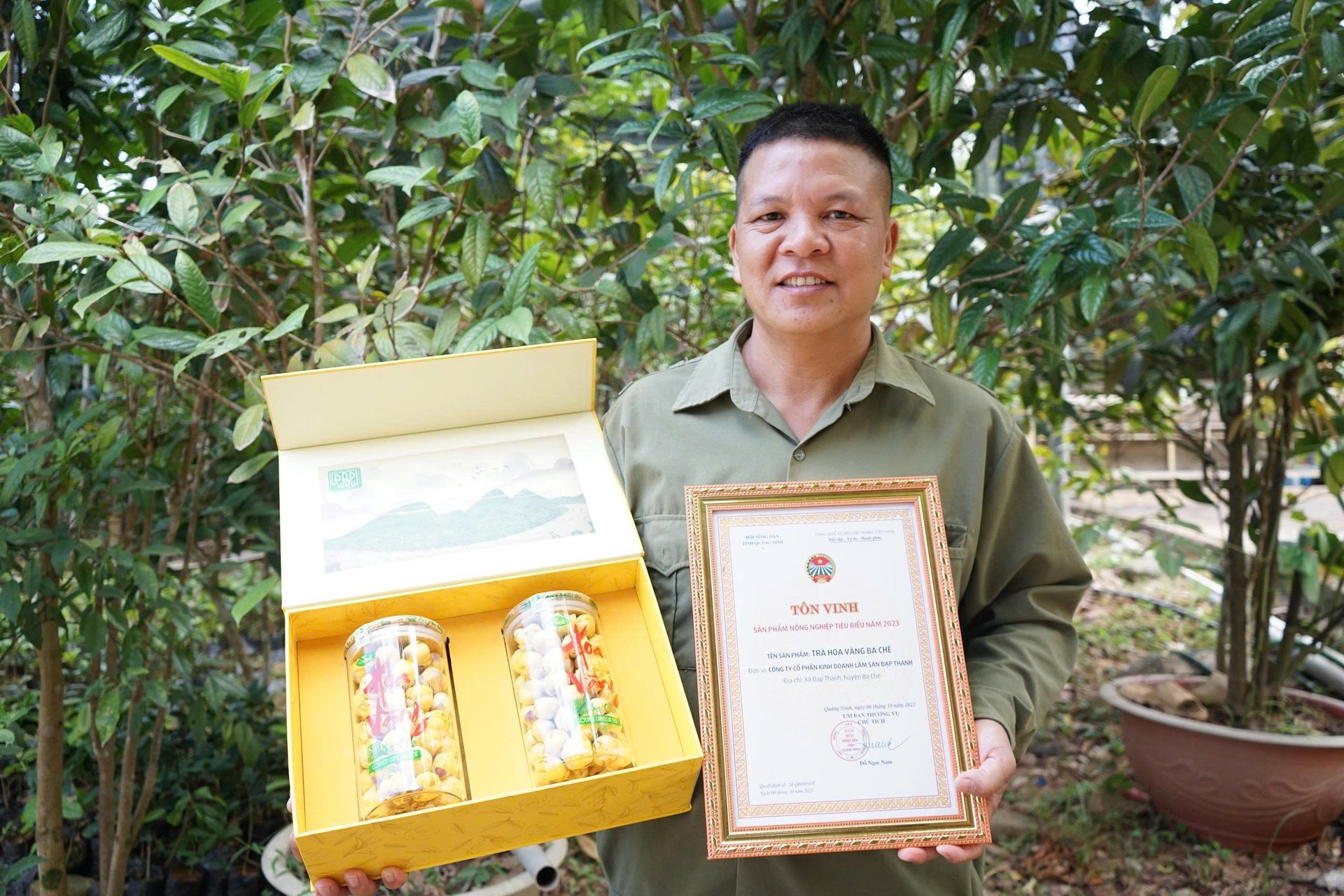
Ba Che golden camellia tea has been recognized as a nationally certified 5-star OCOP product. Photo: Nguyen Thanh.
To support exports, the province has issued over 2,600 QR codes for product traceability and provided 1,339 user accounts for operating the OCOP management system. In addition, 100% of OCOP products rated 3 stars or higher have been listed on major e-commerce platforms such as Postmart, Voso, and Shopee.
Notably, many OCOP producers have proactively upgraded their production processes to meet international standards such as ISO 22000, HACCP, and GlobalGAP. At the same time, Quang Ninh is implementing specialized training programs on agricultural export for OCOP stakeholders. These include skills in working with international partners, brand protection registration, and establishing cross-border e-commerce distribution channels.
To promote exports, Quang Ninh province has identified three strategic pillars: developing locally distinctive products aligned with international demand; standardizing production processes and quality management; and accelerating trade promotion and digital transformation. In addition to financial support policies, the province is also organizing OCOP fairs at major tourist destinations such as Ha Long and Mong Cai to showcase products to international visitors and create direct connections between producers and foreign consumers.
At the same time, the province is actively screening and eliminating underperforming products. In 2023, 73 products were removed from the OCOP list, demonstrating its strong commitment to building an OCOP brand associated with quality and long-term credibility.
The OCOP program in Quang Ninh, which began as an initiative to tap into local strengths, has evolved into a strategic driver of rural economic development, contributing to the growing global presence of Vietnamese agricultural products.
Looking ahead, the province aims to increase the number of nationally certified 5-star products to 15–20 by 2030, expand export markets, and gradually establish Quang Ninh as a key production and export hub for specialty agricultural products in northern Vietnam.
Translated by Phuong Linh
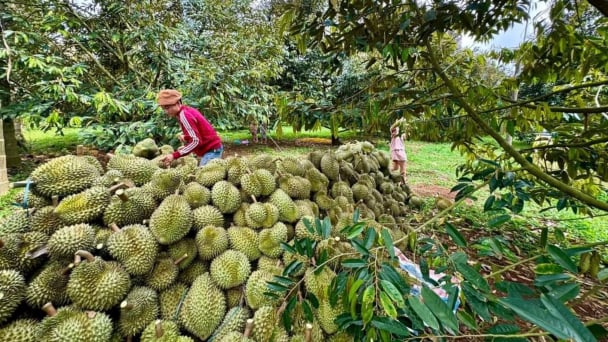
(VAN) After a sharp decline in the early months of the year, Vietnam's durian exports are experiencing a strong recovery, driving the overall rebound in fruit and vegetable exports.
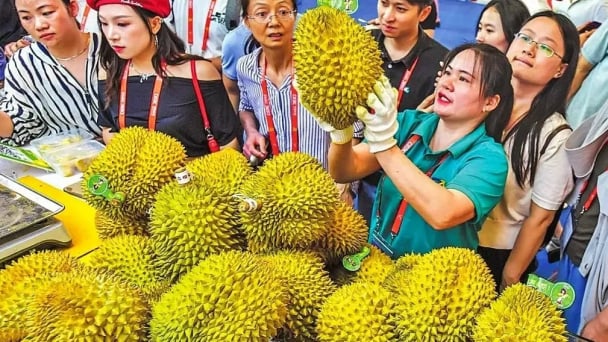
(VAN) The volume of durians imported through Guangxi has surged as the region invests in logistics infrastructure and takes advantage of tariff incentives from the RCEP agreement between China and ASEAN.
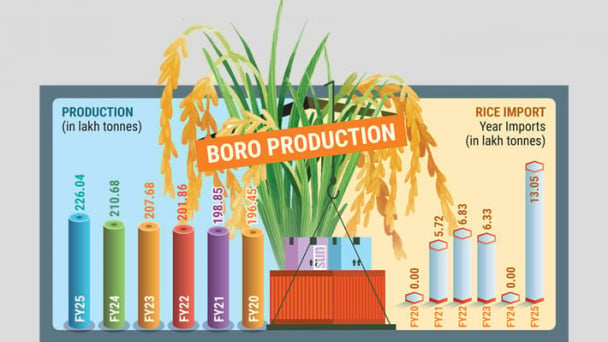
(VAN) Rice prices in Bangladesh have shot up over the past year, rising by as much as 16%, despite a record-breaking harvest this season and large volumes of imports in 2024-25 fiscal year.
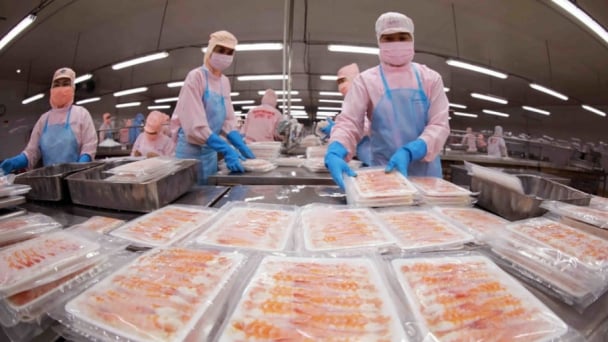
(VAN) U.S. seafood tariffs trigger major disruptions in global supply chains. Vietnam proactively shifts markets and strengthens internal capacity to maintain its export position.
/2025/07/26/1437-0-nongnghiep-221433.jpg)
(VAN) To achieve successful exports, Vietnamese agricultural products must tell a product story that aligns with current trends and reaches to the needs and emotions of international consumers.
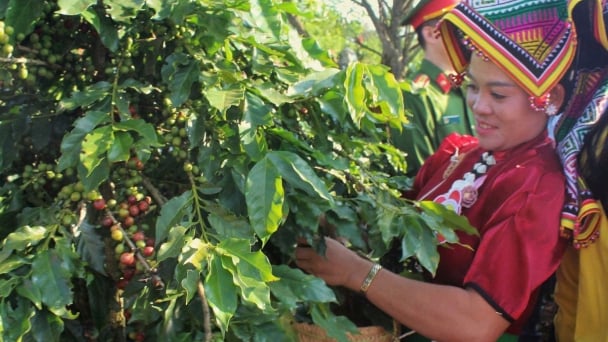
(VAN) Over 600,000 Vietnamese coffee farming households face major challenges as the EU tightens traceability and anti-deforestation requirements by the end of 2025.